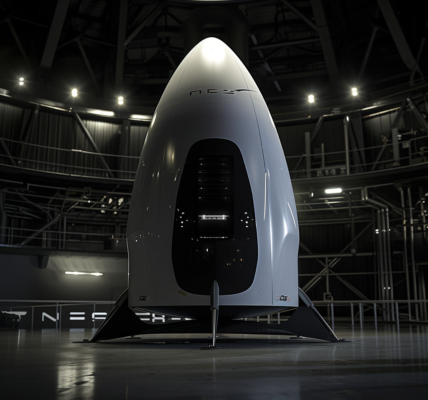A recent SpaceX mission faced an unexpected setback as the Falcon 9 rocket, a cornerstone of the company’s operations, experienced a failure during a routine launch. The incident occurred during a mission to deploy internet satellites for the Starlink network, marking the first failure of a Falcon 9 rocket in nearly a decade.
The launch took place from Vandenberg Space Force Base in California, carrying 20 satellites for the Starlink network. While the initial stages of the mission proceeded smoothly, the second stage of the rocket, responsible for propelling the satellites into orbit, encountered a malfunction. This resulted in the satellites being deployed into a lower orbit than intended.
SpaceX’s CEO, Elon Musk, acknowledged the failure, describing it as a ‘rapid unscheduled disassembly,’ a term often used within the company to refer to unexpected events. The exact cause of the failure remains unknown, prompting speculation and concern within the space industry.
The Federal Aviation Administration (FAA), responsible for overseeing commercial rocket launches, confirmed awareness of the incident. Fortunately, no injuries or property damage were reported as a result of the rocket failure. The FAA is currently evaluating the situation to determine if further investigation is necessary.
This unexpected turn of events has raised questions about the future of the Falcon 9 rocket and its impact on SpaceX’s operations. With the Falcon 9 playing a crucial role in satellite launches and NASA missions, any potential delays or setbacks could have significant implications for both the company and the broader space industry.





